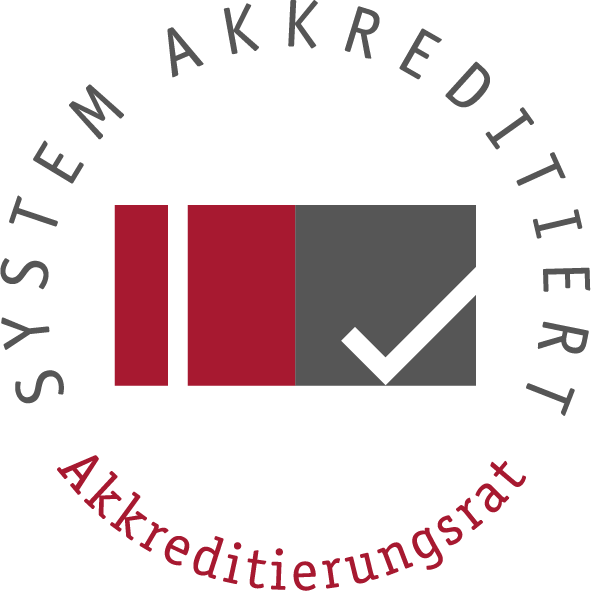
Since the early 2000s, more than half of the corporations on the Fortune 500 list have disappeared due to the impact of digital transformation on products, processes and business models. Today, the focus is on companies that put digital technology at the core of their business activities. The value chains and supply chains of entire industrial sectors and regions are being restructured to exploit the potential that digital transformation offers.
To address these challenges, the European Union has proposed its 'Path to the Digital Decade', a policy programme that sets out targets for the digital transformation of society and the economy by 2030. To reflect these developments, the Master's degree programme 'Digital Transformation Technologies and Management' at Saarland University has been created to produce graduates who can actively shape and play a leading role in the digital transformation of Europe.
This double degree-Master's programme is the only one in the world whose graduates are digital transformation managers with an international focus. Working in close partnership with partners at Vytautas Magnus University in Kaunas, Lithuania, students on the programme are taught how to design and structure digital transformation processes and thus strengthen the internationalization of businesses. Graduates from the M.Sc. programme have the skills set needed to take up challenging international research, development and management roles at the interface of business management and computer science.
Applications for the Master's programme in Digital Transformation Technologies and Management are currently not being accepted.
Information on future application deadlines or the continued availability of the programme is not yet available. We apologise for any inconvenience and thank you for your understanding that we are unable to answer individual enquiries at this time.
We will publish any new information here as soon as it becomes available.
The digital transformation of the economy requires managers with a skills portfolio that combines technological competence, business acumen, an understanding of complex networks and the ability to identify and exploit transregional and cross-border business opportunities. The double degree Master's programme 'Digital Transformation Technologies and Management' provides students with the opportunity to acquire an in-depth understanding of the complexity and heterogeneity of the European regions and to develop innovative ways of using the specific characteristics of Europe and the European market to drive digital transformation. Graduates from the programme have the following core competencies:
- Knowledge of digital technologies and practical methods that can be used to analyse their impact on organizations and businesses in particular
- The ability to apply artificial intelligence, IT security principles, virtual reality technology and 3D modelling concepts to the design of information systems
- The ability to develop and evaluate digital strategies, processes, products and services to meet market demands
- The knowledge and skills to drive digital transformation in organizations and to establish start-ups for that purpose
- An understanding of current academic research in the fields of IT and business management
- An appreciation of the challenges and opportunities of transnational cooperation within the European Union
To graduate from the programme, students are required to earn a total of 120 ECTS credits, of which 30 credits are awarded for the Master's thesis. The M.Sc. programme has the following structure:
Digital management (36 credits):
- Bank Management
- Business Taxation
- Financial Controlling
- Entrepreneurship
- Trade Management
- Marketing
- Economics – Economic Theory
- Economics – Economic Policy
- Financial Reporting and Financial Management
- Operations Management
- Technology and Innovation Management
- Financial Auditing
Digital technology and infrastructure (36 credits):
- 'Digital Tech & Infrastructure' core modules
- 'Digital Tech & Infrastructure' applied modules
European collaboration (12 credits):
- European Languages
- Intercultural Collaboration
- Language Technologies
Master's Thesis and Seminar (36 credits)
- Seminar paper
- Master's thesis
As part of the double degree structure of the degree, Saarland University students must spend at least one semester studying at Vytautas Magnus University in Kaunas, Lithuania; the Lithuanian students on the programme spend at least one semester studying in Saarbrücken. The international mobility semester enables students to begin early building a network of contacts in Europe from which they can benefit professionally in their later careers.
Graduates from the Master’s programme have a wide range of career options open to them in such fields as:
- Digital consulting / Management consulting
- Digital transformation management / Transformation management
- IT consulting
- Technology management
- IT project management
- Software development / app development
| Standard period of study | 4 semesters (full-time study) Part-time studie options are available |
| Qualification | Master of Science (M.Sc.) Multiple degree in cooperation with Vytautas Magnus University in Kaunas, Lithuania |
| Language of instruction | English |
| Required English proficiency | Level B2 (CEFR) |
| Restricted entry programme | No |
| Tuition fees | None |
| Semester fee | See current fee structure |
Dr. Patrick Klein
Saarbrücken Campus
Phone: +49 681 302-2138
sekretariat(at)wiwipa.uni-saarland.de
www.uni-saarland.de/vipa
Celine Vogt
Wirtschaftswissenschaftliches Prüfungssekretariat
Phone: 0681 302-2138
masterbewerbung(at)wiwipa.uni-saarland.de
www.uni-saarland.de/vipa
Central Student Advisory Service
Saarbrücken Campus
Building A4 4, Ground floor
Phone: +49 681 302-3513
studienberatung(at)uni-saarland.de
Central Student Advisory Service

Accredited study programmes
Saarland University was one of the first universities in Germany to achieve Quality Assurance Accreditation and has held the Accreditation Council's official quality mark continuously since 2012.
Quality management

